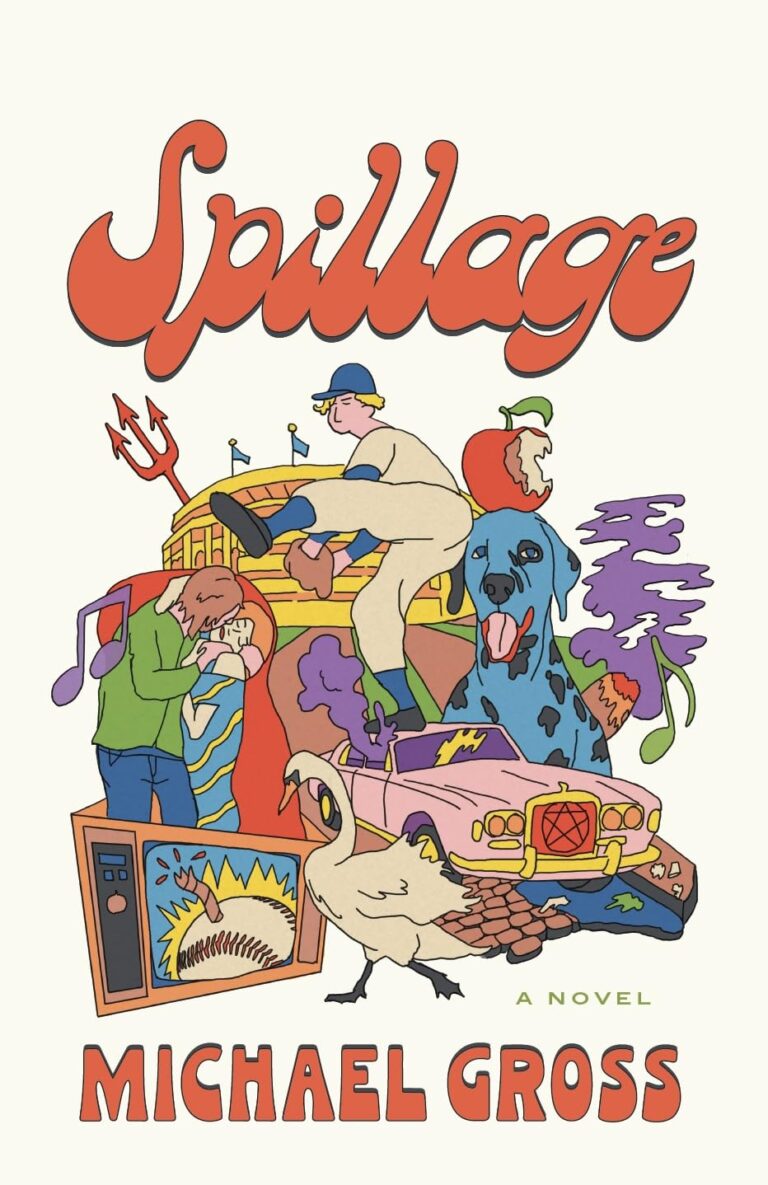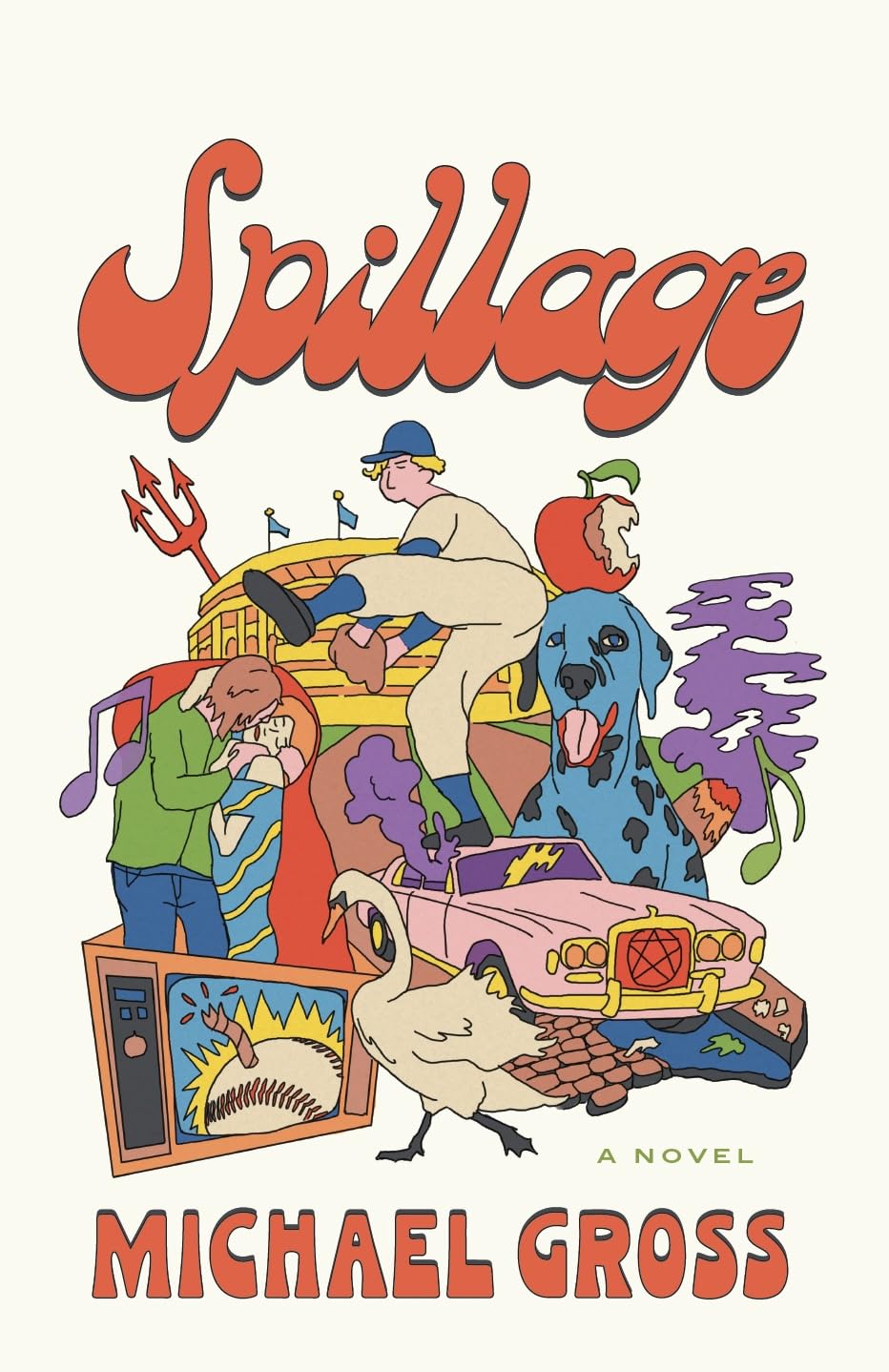It’s New York in the 1970s, and the city is teetering on the brink. Neighborhoods are crumbling, and crime is on the rise. The Satanic Vanguard, a revolutionary group fronted by hoodlum-hipster Raoul Wo, has kidnapped the mayor and is threatening to bring chaos to the Big Apple. Caught in the middle of it all are Joan and Eliot, a couple brought together by their love of rock ’n’ roll and nurtured by the hopes and dreams of the swinging sixties. But now those dreams have faded, and the cracks in their relationship are beginning to show. Joan’s latest obsession is Nick “The Swan” Spillage, the Yankees’ rookie phenomenon who has single-handedly propelled the team to the World Series. While Eliot seeks to reset his mojo, Joan has been lured into the orbit of the charismatic Raoul. The Satanic Vanguard have their sights on Spillage, and Joan has just become integral to their plans.
Michael Gross began writing SPILLAGE in 1976, the year in which it is set. Having abandoned the novel for almost fifty years, he revisited and revised the manuscript through more mature eyes while hoping to retain the essence of himself at the time of writing—when he was, as he puts it, “in all my youthful, anarchistic fervor.” One of the great strengths of the book is the verisimilitude of its setting, New York (especially the East Village), captured as a time capsule of on-the-spot reportage rather than retrospective imagination. The period detail is impeccable, the mise-en-scène utterly convincing. At one point Eliot conjures the memory of the chaos of a blackout when the couple escaped from the darkness of a movie theater: “Walking home to the sounds of store windows being shattered by looters and the occasional bursts of gunshots, almost brushed by shrapnel from an exploding garbage can, they held tightly to one another to avoid being separated. Just another night in the Big Rotting Apple.” The minutiae of mid-70s New York City living and the socio-cultural hangover left over from the 60s become naturalistic backdrops for Gross’s more outlandish characters and freewheeling plot.
The book is understandably reminiscent of much of the literary fiction of its era, imbued with the cynicism that surfaced after the failed dream of the flower-power revolutionaries had wilted. Joan and Eliot’s idealism has likewise faded. The Beatles are a distant memory. There is no more busking together on the subway. Even the Che Guevara poster has been taken down. As Eliot puts it: “We thought it would be easy to remake the world, change it for the better, but then the world took a big change for the worse, and we got disheartened.”
The emotional beat of the novel is the shifting relationship between Joan and Eliot—triggered by Joan’s sudden (and somewhat inexplicable) obsession with a baseball star. By writing in third-person present tense, there is an immediacy to Gross’s prose that helps propel the narrative. There is a playfulness in its structure, too. There are switchbacks and surprises. Some logical, others almost magical. Though Gross does well in reining in the excesses of his multi-stranded story, there are times when it becomes rather difficult to keep up with the novel’s plotting, and the reader becomes as confused as the frequently-bamboozled characters within its pages.
That said, the novel is always engaging, and Gross is a skilled enough stylist to ride the confusion to a satisfying conclusion—sometimes using secondary character “gonzo” journalist Art Popov’s newspaper reports to recap the action.
From its Milton Glaser-style cover onwards, SPILLAGE by Michael Gross shines as a resurrected literary curio from another era. An infectiously entertaining comic novel, charming and delightfully confusing.
~Kent Lane for IndieReader


